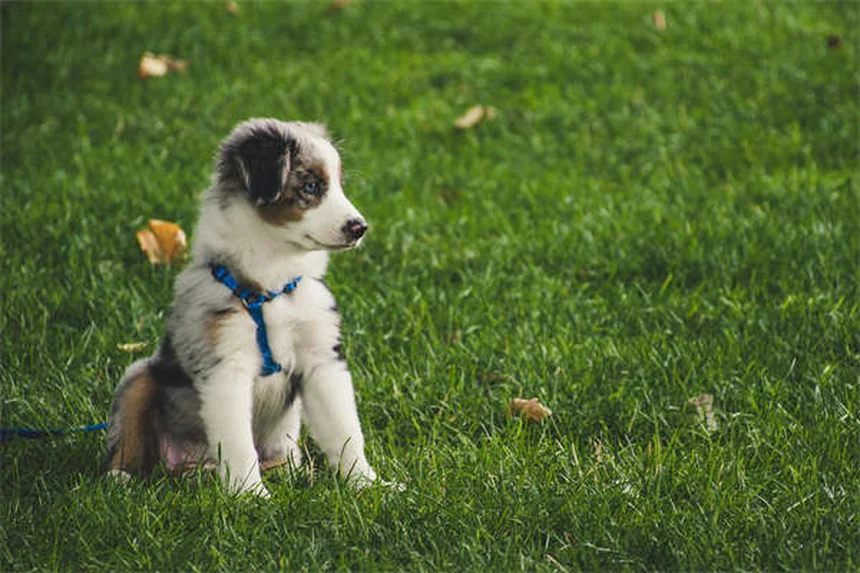Why do cats bring you dead animals? The answer is simple: they love you! When Fluffy drops that half-eaten mouse at your feet, she's not trying to gross you out - she's actually showing affection in the only way she knows how. As a cat owner myself, I've learned this bizarre behavior is actually a huge compliment from your feline friend.Here's the deal: cats are natural hunters, and when they bring you their prize, they're treating you like family. Think of it as their version of bringing home groceries! But while we appreciate the thought, most of us would rather not wake up to dead lizards in our slippers. That's why we'll also share some smart ways to redirect this instinct without hurting your bond.
E.g. :Cat Spraying: 7 Proven Ways to Stop Your Cat From Marking
- 1、The Mysterious Gift-Giving Habits of Cats
- 2、The Dark Side of Your Cat's Hunting Habits
- 3、How to Redirect Your Cat's Hunting Instincts
- 4、What to Do When the Damage is Done
- 5、Understanding Your Cat's Love Language
- 6、The Secret Social Lives of Hunting Cats
- 7、The Psychology Behind the "Gift" Ritual
- 8、Cultural Differences in Cat-Human Relationships
- 9、Training Alternatives That Actually Work
- 10、When Hunting Becomes a Health Concern
- 11、FAQs
The Mysterious Gift-Giving Habits of Cats
Why Does Fluffy Keep Leaving "Presents" on My Pillow?
Picture this: you wake up to find a dead mouse next to your pillow, with your cat staring at you like they just won the Nobel Prize. What's up with that? Well, your feline friend isn't trying to gross you out - they're actually showing love in their own special way!
This behavior is hardwired into their DNA, just like kneading blankets or scratching furniture. Indoor cats do it too, often bringing you their favorite toys while making those adorable chirping sounds. It's their version of saying "Hey human, I caught this for you!"
The Science Behind the Strange Behavior
Researchers have several theories about why cats do this:
- Motherly instincts: They're practicing skills momma cat taught them
- Sharing is caring: They see you as part of their family
- Safe storage: Your bed is their version of a refrigerator
Here's a fun fact: cats often play with their prey before eating it, so when they bring you that half-dead lizard, they might actually be inviting you to join the game! How's that for a bonding experience?
The Dark Side of Your Cat's Hunting Habits
 Photos provided by pixabay
Photos provided by pixabay
Why Outdoor Hunting is a Big Problem
While we might chuckle at our cats' "generosity," there's a serious side to this behavior. Outdoor cats are incredibly efficient hunters that can devastate local wildlife populations.
Check out these shocking numbers:
| Animal | Annual Deaths Caused by Cats in US |
|---|---|
| Birds | 2.4 billion |
| Small Mammals | 12.3 billion |
The Risks to Your Furry Friend
It's not just about the wildlife - your cat could be in danger too! Prey animals might:
- Carry nasty parasites like tapeworms
- Be poisoned by rodenticides
- Fight back and injure your cat
Did you know outdoor cats typically live 2-5 years, while indoor cats often reach 15-17? That's a huge difference! Keeping Fluffy inside could literally add a decade to their life.
How to Redirect Your Cat's Hunting Instincts
Creating Safe Outdoor Experiences
I get it - your cat probably loves going outside. Here are some safer alternatives:
Catios (cat patios) like the Aivituvin® Outdoor Cat House give them fresh air without the risks. For quick outdoor sessions, try the Frisco® Mesh Pop-up Playpen - it's like a portable safari for your mini lion!
 Photos provided by pixabay
Photos provided by pixabay
Why Outdoor Hunting is a Big Problem
The key is satisfying their natural instincts indoors. Try these awesome toys:
- Frisco Bird Wand - mimics flying prey
- SmartyKat® Motion Teaser - keeps them guessing
- Laser pointers - the ultimate chase game
Pro tip: rotate toys weekly to keep things exciting. Your cat will forget all about hunting real animals when they've got these fun alternatives!
What to Do When the Damage is Done
Handling Unwanted "Gifts"
If your cat does bring home a "present," stay calm. Freaking out might accidentally reward the behavior. Here's what to do:
- Dispose of it quickly and hygienically
- Distract your cat with a toy (but not right after)
- Watch for signs of illness
When to Call for Backup
If the animal is still alive, don't play hero! Contact wildlife experts immediately. And if your cat got hurt during their hunting adventure, get them to the vet ASAP.
Remember: prevention is always better than cure. Keeping your cat indoors or supervised outdoors is the best way to avoid these messy situations altogether!
Understanding Your Cat's Love Language
 Photos provided by pixabay
Photos provided by pixabay
Why Outdoor Hunting is a Big Problem
When your cat brings you gifts, they're actually saying "You're part of my family." It's their instinctual way of:
- Teaching you to hunt (how sweet!)
- Providing for the group
- Bonding with their favorite human
Isn't it funny how cats show affection in ways that make us cringe? But once you understand the meaning behind it, those dead mice become almost... endearing. Almost.
Alternative Ways Cats Show Affection
If you'd prefer less... biological displays of love, watch for these behaviors instead:
- Slow blinks (kitty kisses!)
- Head butting (they're marking you as theirs)
- Kneading (remembering kittenhood)
The bottom line? Your cat's gross gifts come from a place of love. With some patience and the right approach, you can redirect that energy into healthier, less messy bonding activities!
The Secret Social Lives of Hunting Cats
How Wild Cats Teach Their Young to Hunt
You know how human parents teach kids to ride bikes? Well, cat moms do something similar with hunting! In the wild, mother cats go through three distinct teaching phases that might explain your house cat's behavior.
First, they bring dead prey to the kittens. Then, injured but still moving prey. Finally, they supervise practice hunts. Sound familiar? That's exactly what your cat is doing when they drop that half-dead mouse at your feet - they're treating you like a clumsy kitten who needs hunting lessons!
The Surprising Similarities Between House Cats and Lions
Ever notice how your tabby cat stalks toys like a miniature lion? That's because domestic cats share 95.6% of their DNA with African lions. Here's how their hunting styles compare:
| Behavior | House Cat | Lion |
|---|---|---|
| Stalking | Low crouch, tail twitch | Same posture in tall grass |
| Killing Bite | Neck bite on small prey | Throat clamp on large prey |
| Sharing Food | Brings you "gifts" | Lets cubs eat first |
Isn't it wild how your 10-pound furball has so much in common with the king of the jungle? This explains why even well-fed cats hunt - it's not about hunger, it's about fulfilling deep-rooted instincts.
The Psychology Behind the "Gift" Ritual
Why Your Cat Chooses Specific Locations
Have you ever wondered why Fluffy always leaves presents in your bed or by the front door? There's actually method to this madness! Cats choose these spots because:
Your bed smells strongly of you - they're mixing scents to strengthen your bond. Doorways are territorial markers in cat logic - that dead bug on the welcome mat is basically a "no trespassing" sign in cat language!
The Morning After: Reading Your Cat's Reactions
Next time you discover a "gift," watch your cat's body language closely. That intense stare? They're waiting for your reaction. The proud chirping? That's their version of "Do you like it? I worked really hard on this!"
Here's something fascinating: cats can read human facial expressions better than dogs can. So when you make that horrified face, they totally notice! Try giving a calm "thank you" before discreetly disposing of the evidence - it satisfies their social needs without encouraging more gifts.
Cultural Differences in Cat-Human Relationships
How Ancient Egyptians Viewed Hunting Cats
While we might groan at dead mice, ancient Egyptians would've celebrated! They actually bred and worshipped cats primarily for their pest control abilities. Temple cats had golden collars and were fed luxury diets - talk about employee benefits!
Archaeologists found cat mummies with mice placed ceremonially in their paws. This suggests Egyptians saw the hunter-prey relationship as sacred. Maybe we're the weird ones for being squeamish!
Modern Japan's Take on Cat Gifts
In Japan, there's a whole cultural phenomenon around cats bringing good luck. The maneki-neko (beckoning cat) statues often hold symbolic items:
- Gold coin: Financial prosperity
- Fish: Abundance
- Gemstone: Good fortune
So when your cat brings a "gift," maybe they're trying to summon good vibes! I'd still prefer they stick to toy mice though...
Training Alternatives That Actually Work
The "Trade-Up" Method for Hunters
Here's a pro tip from cat behaviorists: always have high-value treats ready when your cat brings prey. When they drop the "gift," immediately offer something better like tuna flakes. Over time, they'll associate bringing prey with getting awesome snacks - and might start bringing toys instead!
This works because cats are smart cookies. Why hunt for hours when you can get premium treats for minimal effort? It's like trading in your home-cooked meal for gourmet takeout!
Creating a "Hunting Ground" Indoors
Transform your living room into a feline safari with these easy setups:
Feeder puzzles like the Catit Senses Food Maze make mealtime a hunt. Hide kibble in paper bags or under overturned boxes for DIY fun. Rotate "hunting zones" weekly to keep things fresh - your cat will burn energy and satisfy instincts without harming wildlife.
Remember, a tired cat is a happy cat... and a happy cat owner! Fifteen minutes of interactive play can reduce hunting behavior by up to 25%. Now that's a statistic worth chasing!
When Hunting Becomes a Health Concern
Recognizing Compulsive Hunting Behaviors
While hunting is normal, some cats take it too far. Warning signs include:
- Bringing multiple prey items daily
- Ignoring food to keep hunting
- Aggression around caught prey
Does your cat seem obsessed? They might need more mental stimulation. Try clicker training or food-dispensing toys to redirect that intense focus. In extreme cases, consult a vet - medication can help balance obsessive behaviors.
The Hidden Dangers of Outdoor Prey
That innocent-looking mouse could be a ticking time bomb! Outdoor prey often carries:
| Danger | Risk Level | Prevention |
|---|---|---|
| Roundworms | High | Monthly deworming |
| Rabies | Medium | Vaccination |
| Poisoning | High | Keep indoors |
I don't know about you, but those odds make me want to cat-proof my backyard! A simple screened porch or leash training can give your cat outdoor time without the risks.
E.g. :Why do cats bring their owners ''gifts'' of dead animals? : r/cats
FAQs
Q: Is it normal for indoor cats to bring "gifts" too?
A: Absolutely! Even indoor-only cats will often bring you toys or household items while making those adorable chirping sounds. This shows the behavior isn't just about hunting - it's about bonding. My own tabby brings me hair ties at 3 AM like they're precious jewels! The key is providing plenty of interactive toys that satisfy their natural instincts without the mess.
Q: Why does my cat meow loudly when bringing me things?
A: Those dramatic announcements are your cat's way of saying "Look what I got for us!" In the wild, mother cats call their kittens to meals this way. When your cat does it, they're essentially treating you like their kitten - which is oddly sweet when you think about it. Try responding with praise (but maybe not for dead animals) to strengthen your bond.
Q: Can bringing home prey make my cat sick?
A: Unfortunately, yes. Wild prey can carry parasites like tapeworms or even poison if they've eaten rodenticides. I always recommend regular vet check-ups for outdoor adventurers. A friend's cat once got seriously ill from a poisoned mouse - it was scary! That's why keeping cats indoors or supervised is healthiest.
Q: How can I stop my cat from killing birds?
A: The most effective solution? Keep kitty indoors or use a secure catio. If that's not possible, try these tricks: put a bell on their collar (though clever cats learn to move silently), schedule play sessions before dawn (when birds are most active), and create an enriching indoor environment. My cats love their window perches for safe bird-watching!
Q: Should I punish my cat for bringing me dead animals?
A: Never! Punishment will only damage your relationship and won't stop the instinct. Instead, stay calm and quietly dispose of the "gift." Later, redirect their energy with interactive play. Remember - in kitty logic, they're being thoughtful! I've found that consistent positive reinforcement for bringing toys instead works much better long-term.







